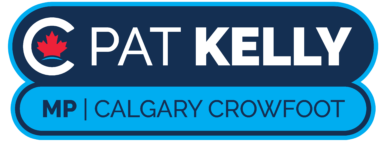BACKGROUND:
The Canada Revenue Agency (CRA) performs a vital role in Canada. It generally does a good job as a tax collection agency, but at times taxpayers are treated unfairly.
If a decision seems wrong, taxpayers may go through CRA’s internal objection process or they can take the matter to court. In rare cases, the CRA makes mistakes that result in extraordinary and irreparable damage, including loss of a taxpayer’s home or livelihood. An enforceable duty of care between CRA and taxpayers would give Canadians confidence they would be fairly compensated in the case of gross negligence. The system would be more fair, helpful, and easier to use. In addition, the CRA would be more accountable.
SUMMARY:
I tabled M-43 in an effort to provide Canadians with a legal remedy in the exceptional cases where CRA employees act frivolously, vexatiously, maliciously, or with gross negligence toward taxpayers. It asks the House of Commons Standing Committee on Finance to study and report on the best ways of doing so. Referring the matter to Committee for study allows the CRA, accountants, tax lawyers, taxpayer advocates, and ordinary Canadians to discuss how to make CRA more efficient while giving taxpayers effective recourse if something goes wrong with their tax files. The goal is to protect taxpayers without crippling the CRA’s ability to collect tax revenue.
MAIN POINTS:
M-43 would instruct the House of Commons Standing Committee on Finance to study ways to:
- create a legally enforceable duty of care owed by CRA to taxpayers;
- make the Taxpayer Bill of Rights more enforceable, such as by making it the standard of care for CRA’s activities; and
- empower the Office of the Taxpayer’s Ombudsman with investigative and remedial authority.
In particular, it seeks to:
- require CRA to ensure communication is accurate and reliable;
- require CRA to address complaints in a timely manner;
- require CRA to avoid frivolous, vexatious, malicious, and/or grossly negligent actions; and
- establish reasonable limits to the rights forming the standard of care and duty of care between CRA and taxpayers.
The Motion instructs the Finance Committee to report back to the House of Commons by the last sitting day of 2017 with recommendations for the principles, scope, and general provisions of a bill to implement these reform measures.
OUTCOME:
The Liberals and the NDP opposed Motion M-43 when it was debated in the House. The Parliamentary Secretary to the Minister of National Revenue argued that the existing dispute resolution systems at CRA are adequate.
The NDP attempted to block the introduction of this motion on procedural grounds. The Speaker eventually ruled in my favour, thus my motion may set a parliamentary precedent by establishing that a private member’s motion can instruct a committee. The NDP then stated their opposition to Motion M-43 by mischaracterizing it as an attack on the employees of the CRA. They also complained that any problems with CRA are due to inadequate funding.
The vote on Motion M-43 is scheduled for Wednesday, September 21st, 2016. Regardless of whether this motion passes, it could become a valuable contribution to our democratic institutions for the precedent it sets by empowering individual Members of Parliament to represent their constituents without needing to be in Cabinet. If you would like to watch the vote, you can stream it at http://parlvu.parl.gc.ca. Select the Calendar-Day/Month tab on the left side, then navigate the calendar to September 21st. Private Members’ Business is at 17:30 Eastern Time on Wednesdays. You can also watch live on the Canadian Public Affairs Channel (CPAC) by visiting http://cpac.ca/en/ (English) or http://cpac.ca/fr/ (French).
I will continue to fight for accountability from the government and agencies like the CRA.
